In an article I posted here in October, Marital Chaos, I discussed the issue of homosexual marriages after a Supreme Court ruling that refused to repeal the allowance of same-sex marriages in some states. In the comments, the Biblical exposition of Matthew Vines was suggested as providing a basis for being a Christian and a practicing homosexual. I had seen his presentation before and saw some holes he had in his arguments. The comment prompted me to flesh out my problems with his exposition of those Bible verses.
Due to the length of it, I’ve posted the full article on my blog. Here, I’m posting an excerpt of the introduction and the critique of his interpretation of the verses in Romans. A link is at the end in case you wish to read the whole article.
As such topics like these make their way into the Christian fiction landscape, we need the discussion on how to discern statements like those that Matthew Vines’ makes, and sharpen our iron.
———————————
A Critique of Matthew Vines’ Biblical Views on Homosexuality
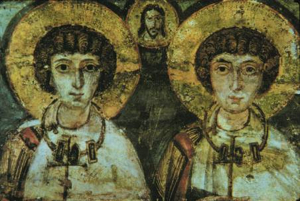
Yale historian John Boswell considers the icon of Sts. Sergius and Bacchus to be an example of an early Christian same-sex union reflective of tolerant early Christian attitudes toward homosexuality based on this icon depicting what some claim is a religious wedding with Jesus as best man and still surviving writings.
Matthew Vines is a practicing homosexual Christian. For many Christians, labeling him as such immediately raises eyebrows. As he concedes, the traditional understanding of homosexual behavior labels it a sin. By all rights, an honest Christian would not willfully live in sin.
Mr. Vines took a two-year break from college to prove scripturally that a gay Christian could practice a loving and monogamous homosexual relationship without sinning. He addresses six biblical passages most often used to prove homosexual behavior is a sin, showing how traditional interpretations have missed the mark. By dismissing them, he hopes to show that homosexuality itself is not intrinsically sinful, though its abuse, like heterosexual desires, may be sinful.
His presentation, distilling his two years of research, can be found on YouTube or you can read the transcript. The video is over an hour long, so get comfy and some snacks if you go that route. He’s also written a book on the topic, which I have not read.
I’m sure Matthew is a sincere Christian. None of what follows questions his relationship with God. I am not his judge. But his exegesis of the passages he focuses on is flawed on several points, causing him to fail in his goal to present homosexuality as not sinful according to the Bible.
I should note that my critique of Mr. Vines’ exegesis and conclusions from the Bible are not a basis for social or legal disrespect against those with homosexual leanings or behaviors. Let he who is without sin cast the first stone. That leaves Jesus who can, and He has a history of forgiveness, not throwing stones.
The motivation for this critique, however, is to ensure we get the proper diagnosis so that the correct remedy for our healing can be applied. If a patient has cancer, it harms the patient for the doctor to argue that they don’t have a disease, delaying treatment that could save their life.
If any homosexual behavior is sinful, as traditionally understood, it is so because it corrupts our created nature and infects us with death. To misdiagnose the sinfulness of a behavior or attitude through faulty Biblical exegesis bears serious eternal consequences.
I would hope Mr. Vines would agree we don’t want to fall into the trap of justifying sin so we can satisfy our own desires. I’m sure his intent is not to do that, but I believe, based on the following, that is the practical outcome of his presentation.
————————-
Romans 1:26-27
Mr. Vines considers these verses to have the greatest weight, being it is in the New Testament and talks about same-sex relationships for both men and women.
Before we get into his defense, we’ll quote the verses so we’re all on the same page.
For this cause God gave them up unto vile affections: for even their women did change the natural use into that which is against nature: And likewise also the men, leaving the natural use of the woman, burned in their lust one toward another; men with men working that which is unseemly, and receiving in themselves that recompence of their error which was meet.
Mr. Vines examines the context of idolatry in which this discussion takes place, and how these verses expand upon that concept by exchanging the real for a replica of the real. The sin listed above takes what is natural (real) and replaces it with what is unnatural (not real). All well and good to this point.
Then to show these verses don’t condemn homosexual sex in total, he uses two arguments. First, he points to a specific parallel between the idolatry argument and what he considers the sin Paul is referring to in these verses. Mr. Vines suggest that for these verses to work within the exchange concept Paul is using, the people referred to had to be heterosexual. If they are homosexual, they would not be making an exchange.
But then you have that pesky word “natural” and “unnatural.” The traditional understanding has always been that man by nature is heterosexual, and so homosexual desire is unnatural, that is, against nature. That is still an exchange and fits the context of Paul’s idolatry argument. Human nature as God designed it is being exchanged for one that violates that design. Paul’s context doesn’t exclude the traditional interpretation.
So this means he needs to understand Paul’s use of the word ‘natural” in a way that supports his view: that a homosexual person’s nature is to be homosexual, not heterosexual. God created gay people that way, and so is their natural state. Then points back to the concept noted above, that there is a difference between lust which Paul is referring to here and a loving, consensual, monogamous homosexual relationship that, he proposes, Paul is not talking about.
How does he do this?
But before we leave this passage, we also need to consider how Paul himself uses these terms in his other letters and how the terms ânaturalâ and âunnaturalâ were commonly applied to sexual behavior in his day.
He then proceeds to talk about one verse that illustrates this difference: 1 Corinthians 11:13-15:
Judge in yourselves: is it comely that a woman pray unto God uncovered? Doth not even nature itself teach you, that, if a man have long hair, it is a shame unto him? But if a woman have long hair, it is a glory to her: for her hair is given her for a covering.
He points out Paul’s use of nature here does not mean the nature of something, but refers to the customs of the time, as this is often referred to in these verses, and is why today it is not a big deal for women to have short hair or men long hair. Therefore we should be interpreting nature in Romans 1 to be speaking not about created human nature in general, but about what is considered natural for a specific person in a specific time and culture.
But hold on a minute. We’re making some assumptions here. I don’t fault him, for it is a common understanding of these verses that hair length is a cultural issue back in Paul’s day that doesn’t apply to us. Or does it?
If true, why are Biblical men often depicted with long hair? Even in Orthodox icons dating back to the early centuries of Christianity, many of them show men saints that according to my grandparents, look like the hippies in the 1960s. Why have monastics since the earliest days reflected the Old Testament Nazarite vow of not cutting any hair, and have been considered holy for it, not disgraced?
If we take nature here to really mean the nature of men and women, his statement makes perfect sense. He’s not making a statement about appropriate hair length in Roman culture, he’s pointing out that by nature, women’s hair grows longer than men’s. They wear it as a crown of glory. Paul doesn’t give us a measurement of short and long. His description is relative of men and women in general. If the hair is not cut, women’s hair by nature will grow longer than a man’s.
But why did Mr. Vines pick this one verse among several? Because all the others use the word ‘nature” to speak of the nature of something, not culture, and so wouldn’t support his argument. I’ll select three out of the list to prove my point.
For if God spared not the natural branches, take heed lest he also spare not thee. (Rom 11:21)
We who are Jews by nature, and not sinners of the Gentiles . . . (Gal 2:15)
Howbeit then, when ye knew not God, ye did service unto them which by nature are no gods. (Gal 4:8)
The natural branches of a tree are the ones that grow on it. A natural Jew is born as one, not added in. Idols are not a god by their nature, which is only wood and stone.
It is clear Paul’s use of nature refers to what is naturally derived from it. So, it is natural for a woman’s hair to grow longer than a man’s if not cut. It is natural in how God created man to be heterosexual. This coincides with our discussion earlier on marriage.
To interpret natural as Mr. Vines does, we’d have to ignore how Paul uses it in nearly every other verse. It can’t refer to the customs of the time, and even in the 1 Corinthian passage, it is not a given it refers to cultural customs there either.
In effect, Mr. Vines, motivated to justify homosexual sex in Scripture, fails to see key problems in his exegesis of this most important passage. By assuming the premise that the traditional interpretation must be wrong, he fails to address it on its own terms and instead, seeks loopholes to justify his position.
————————-
Read the full critique on R. L. Copple’s blog
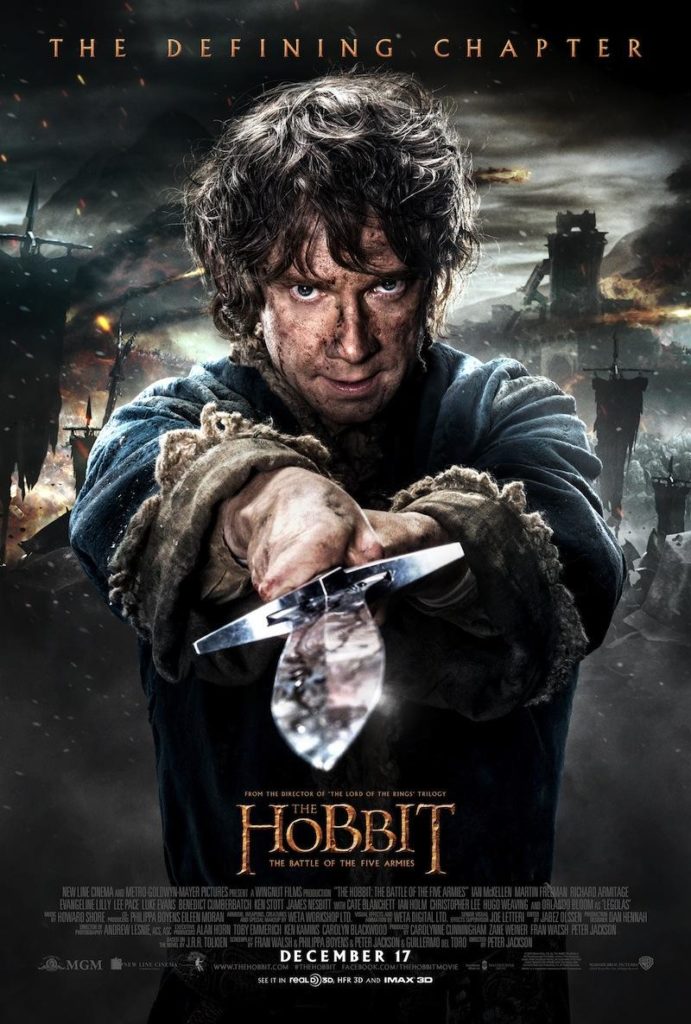 J.R.R. Tolkienâs term âeucatastropheâ describes despairâs sudden turn to joy, but his grand finale for The Hobbit is anything but. As Bilbo says, victory âseems a very gloomy business.â
J.R.R. Tolkienâs term âeucatastropheâ describes despairâs sudden turn to joy, but his grand finale for The Hobbit is anything but. As Bilbo says, victory âseems a very gloomy business.â



































 down the passage (context is king), verses 14 and 15 are just as illuminating to the question:
down the passage (context is king), verses 14 and 15 are just as illuminating to the question: When it comes to magic in fiction, there is no single, all-encompassing definition. Different things are called magic, even within the same work. Magic, in the biblical sense, can and does appear in fantasy, though this is not inherently bad. (What is inherently bad is presenting biblical magic as positive or even neutral – and, I would contend, including real-life occultic practices in such detail as to be Occult 101.)
When it comes to magic in fiction, there is no single, all-encompassing definition. Different things are called magic, even within the same work. Magic, in the biblical sense, can and does appear in fantasy, though this is not inherently bad. (What is inherently bad is presenting biblical magic as positive or even neutral – and, I would contend, including real-life occultic practices in such detail as to be Occult 101.)

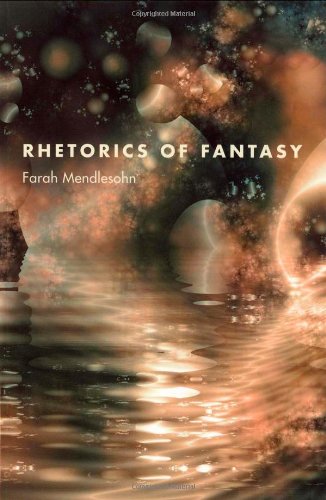

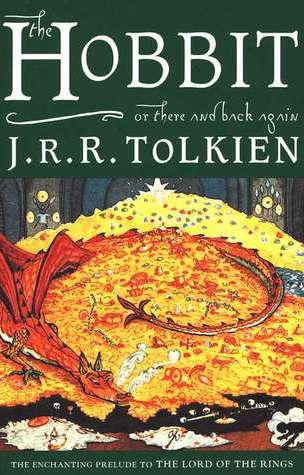
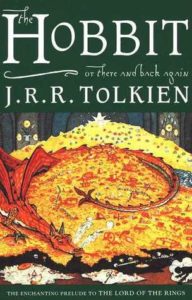

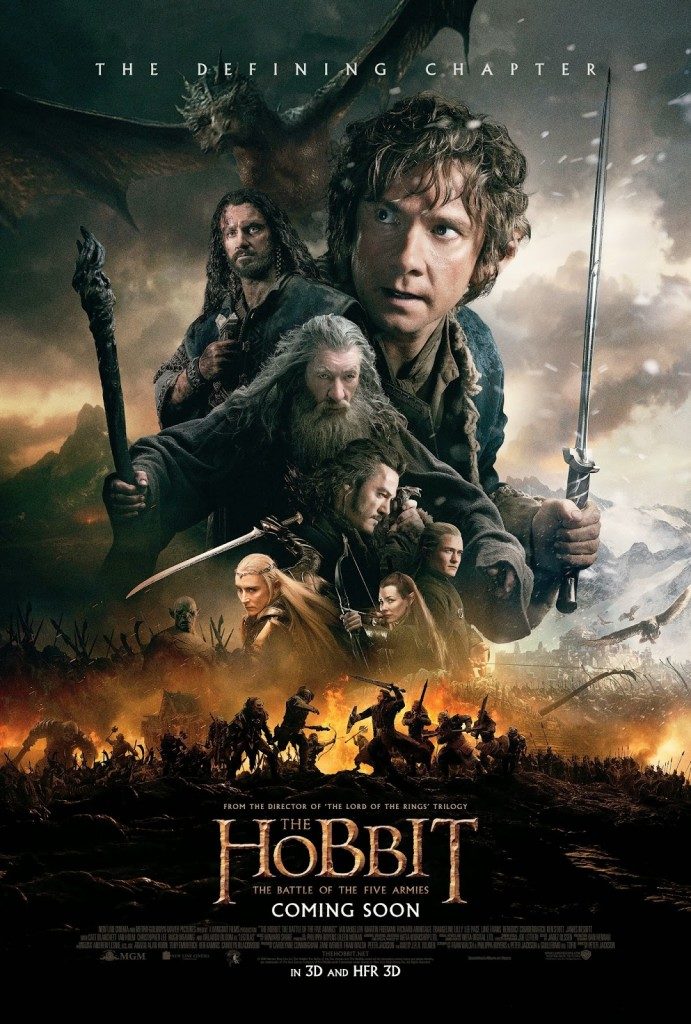
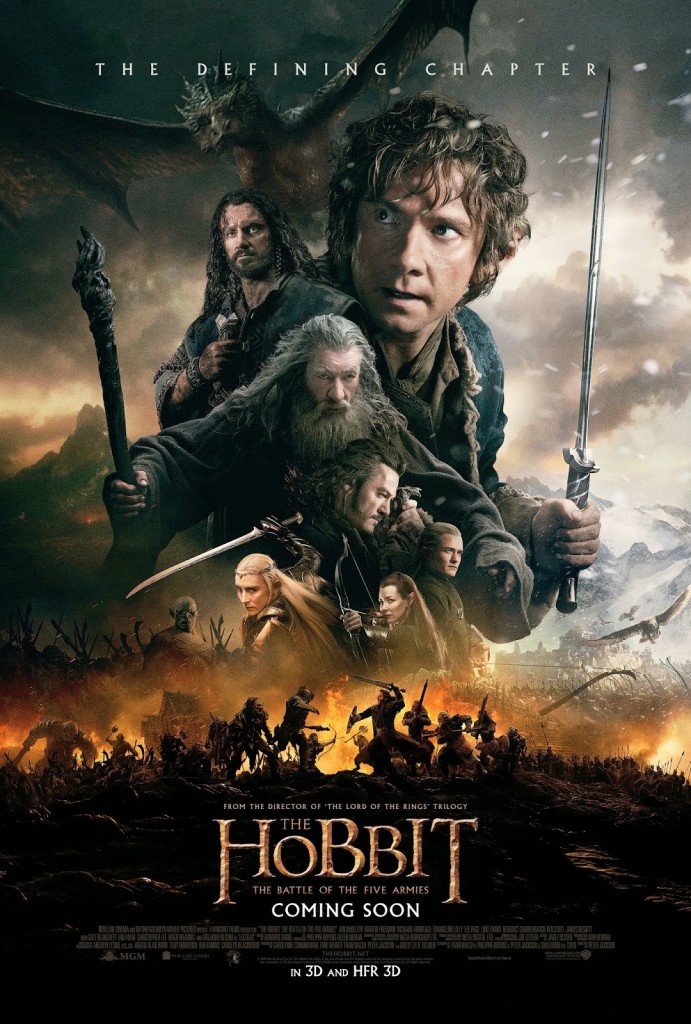
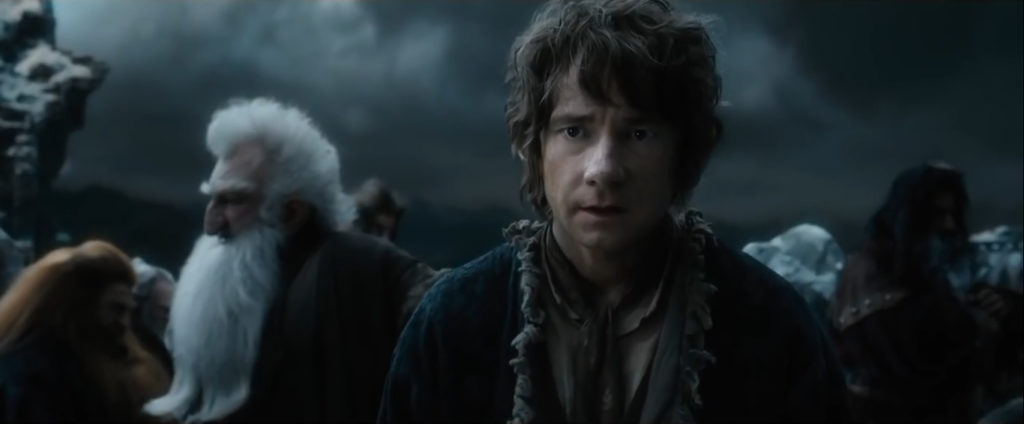


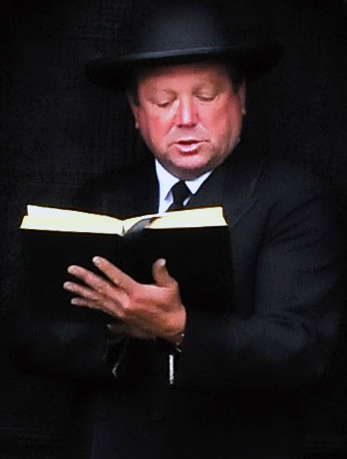




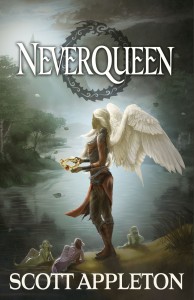

 Scott Appleton is a multi-published fantasy author with AMG Publishing (The Sword of the Dragon series) and now a freelance fiction writer whose works focus on reaching family-focused readers. He and his wife Kelley have three wonderfully creative children and they love to travel for his book signing events. Connect with Scott on
Scott Appleton is a multi-published fantasy author with AMG Publishing (The Sword of the Dragon series) and now a freelance fiction writer whose works focus on reaching family-focused readers. He and his wife Kelley have three wonderfully creative children and they love to travel for his book signing events. Connect with Scott on 
